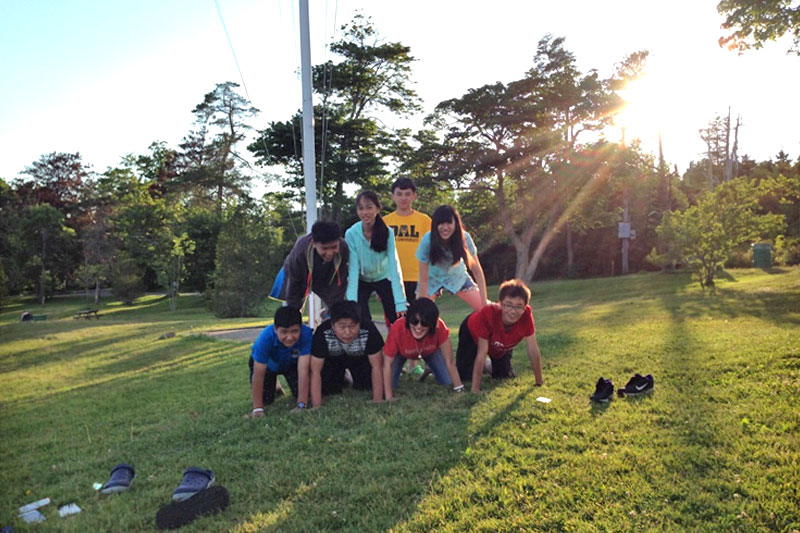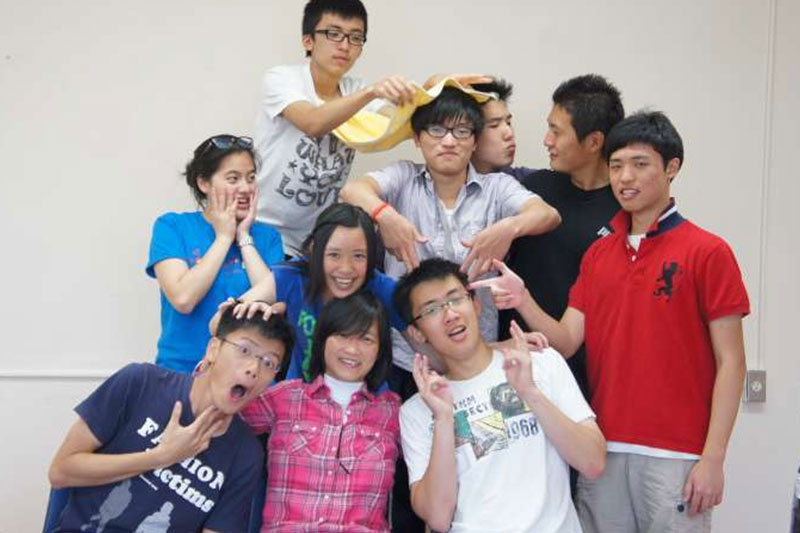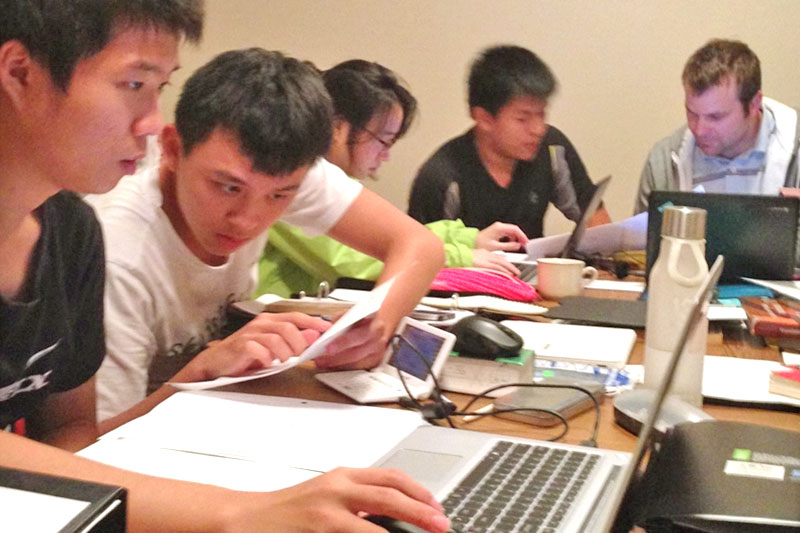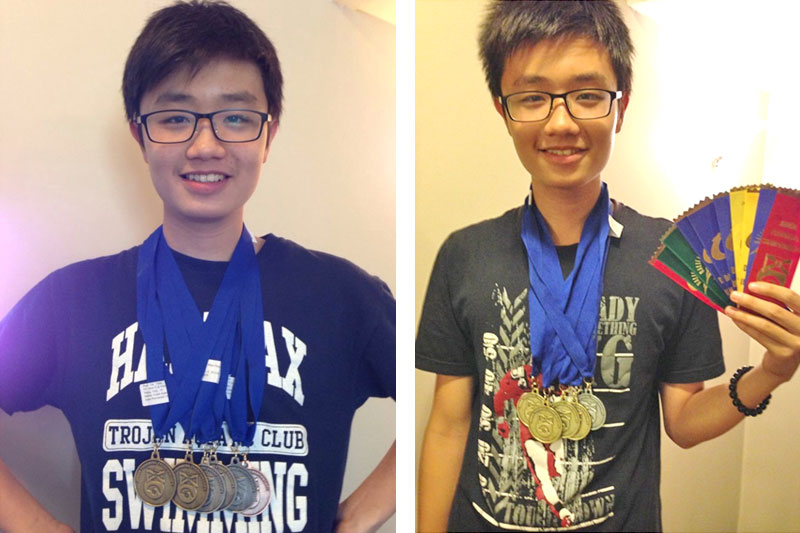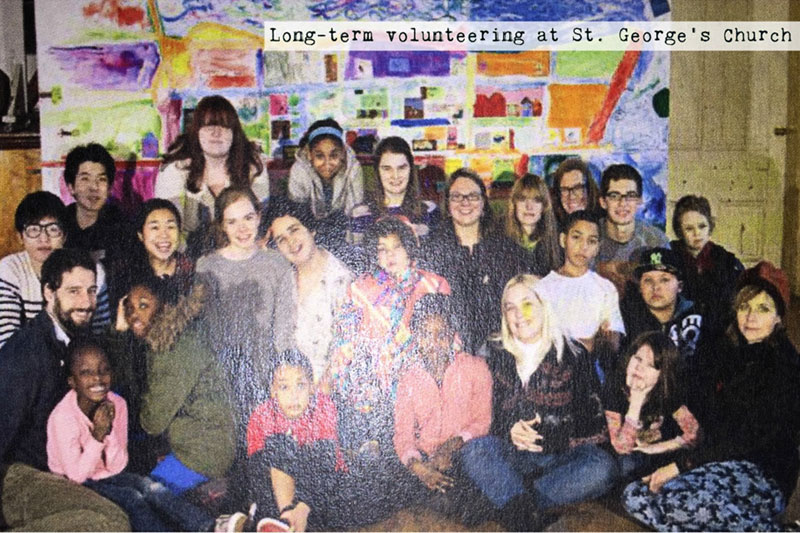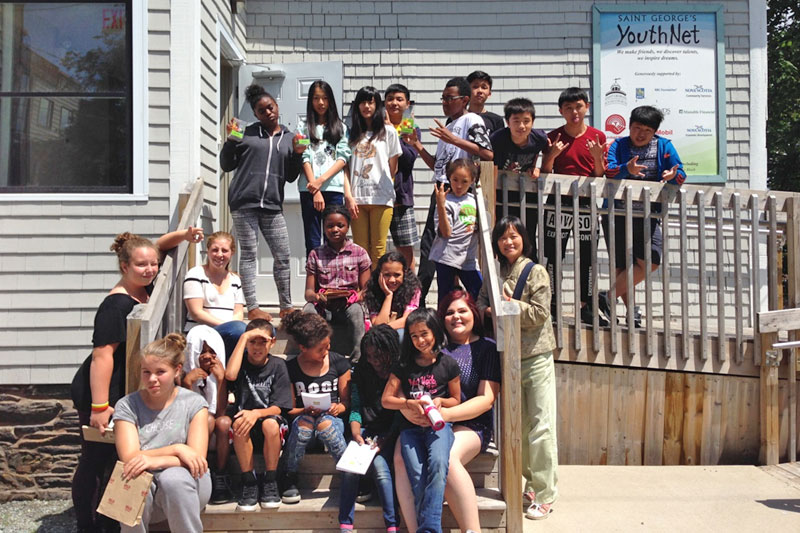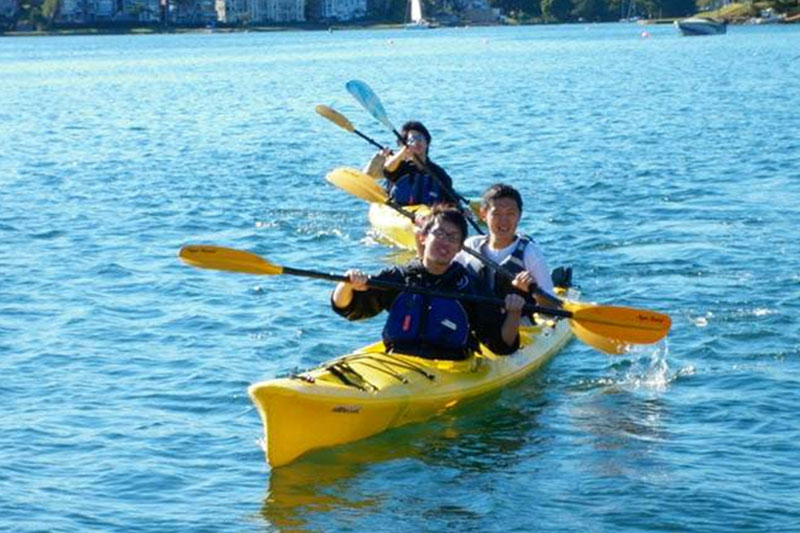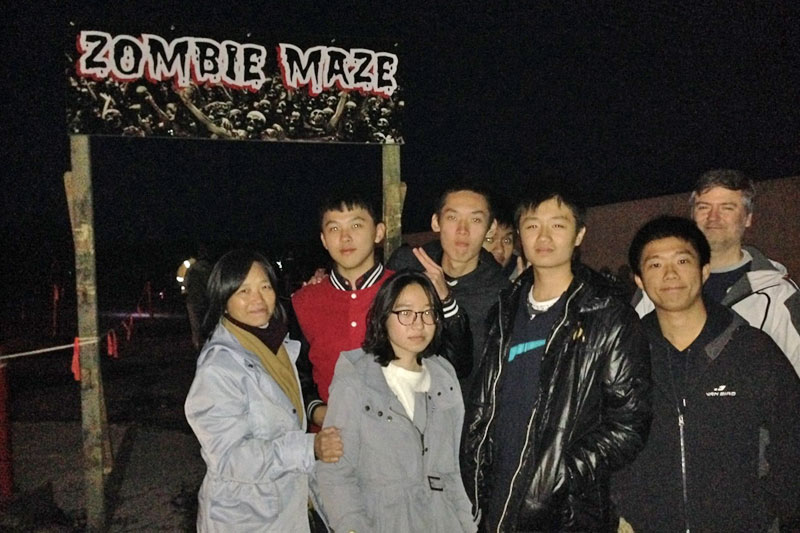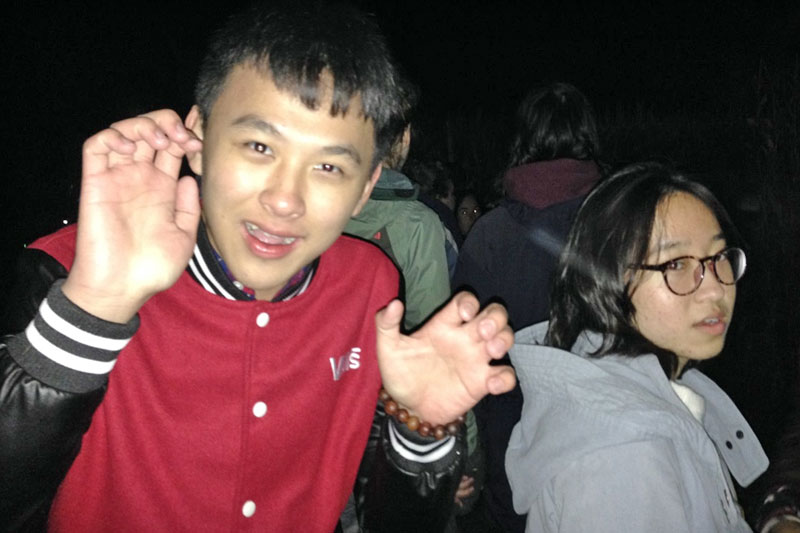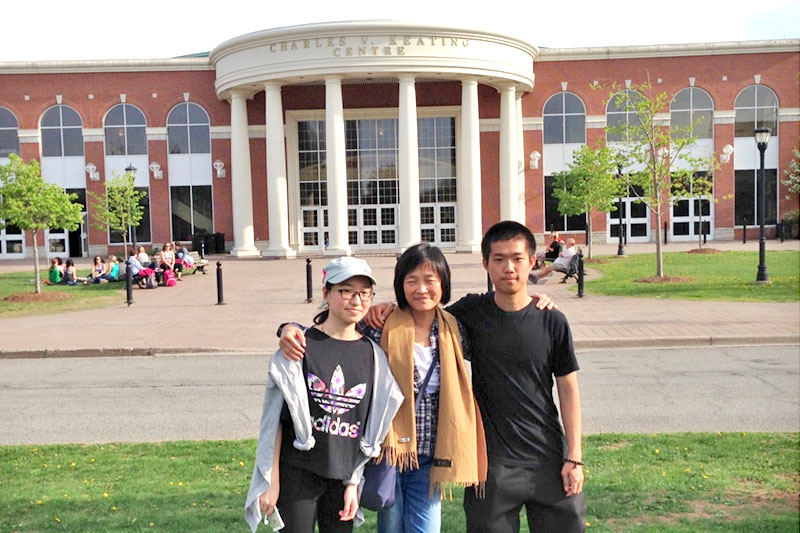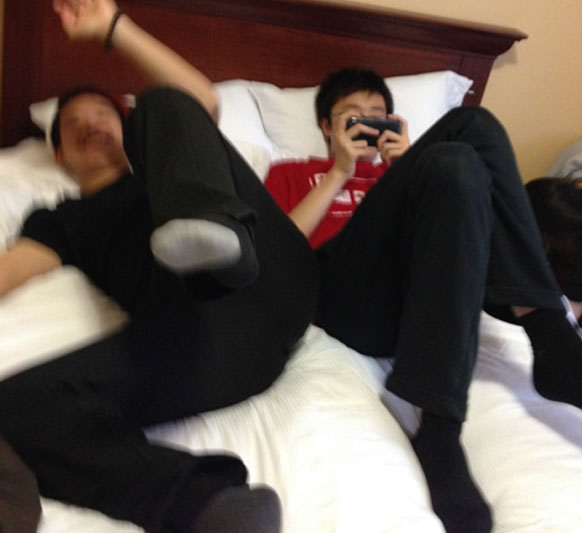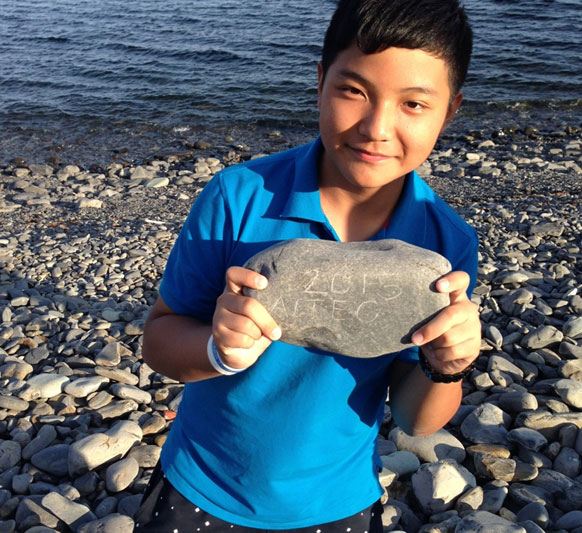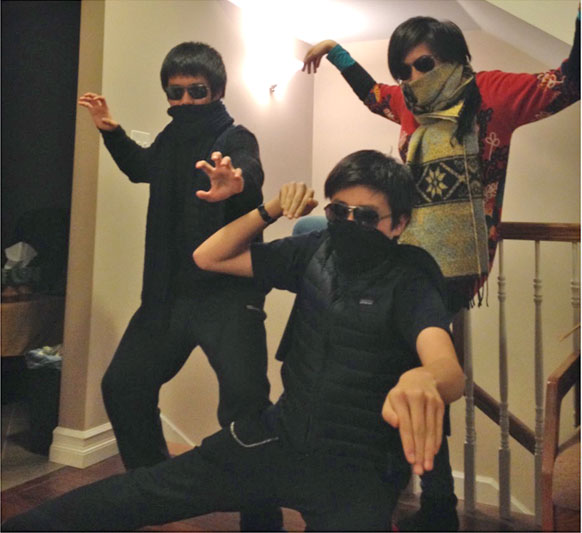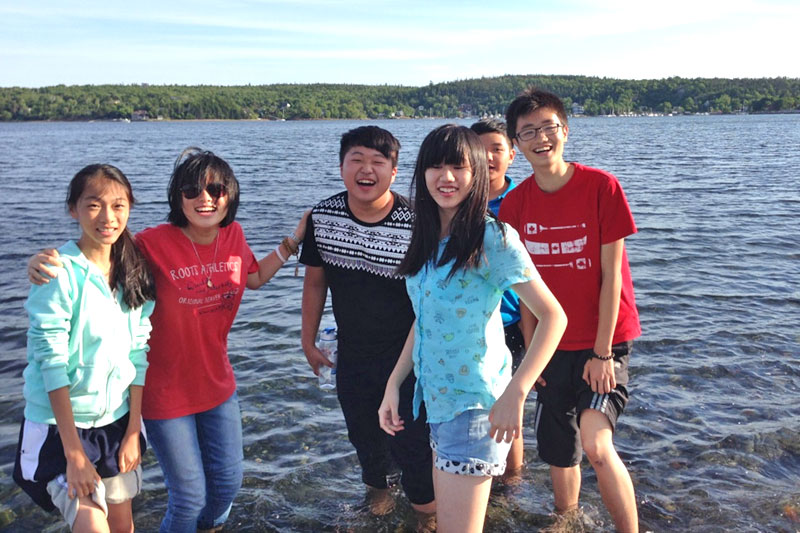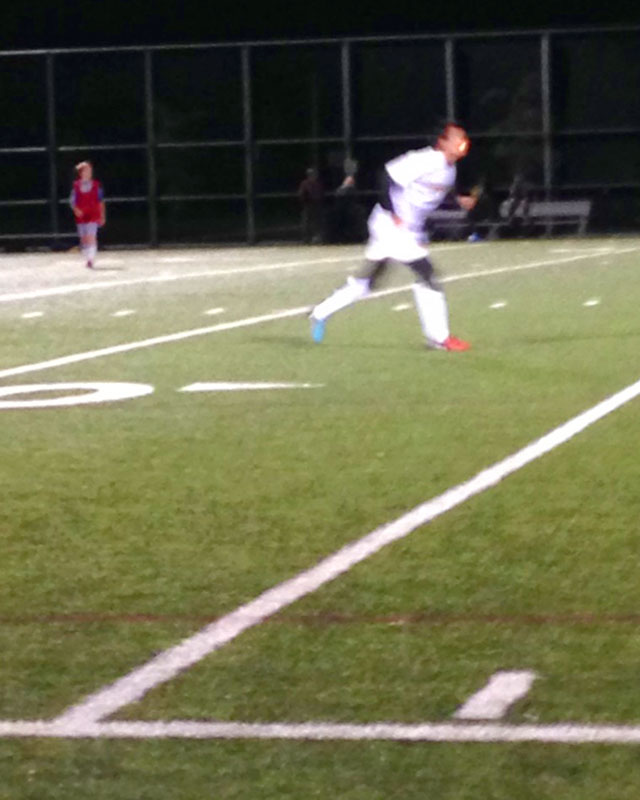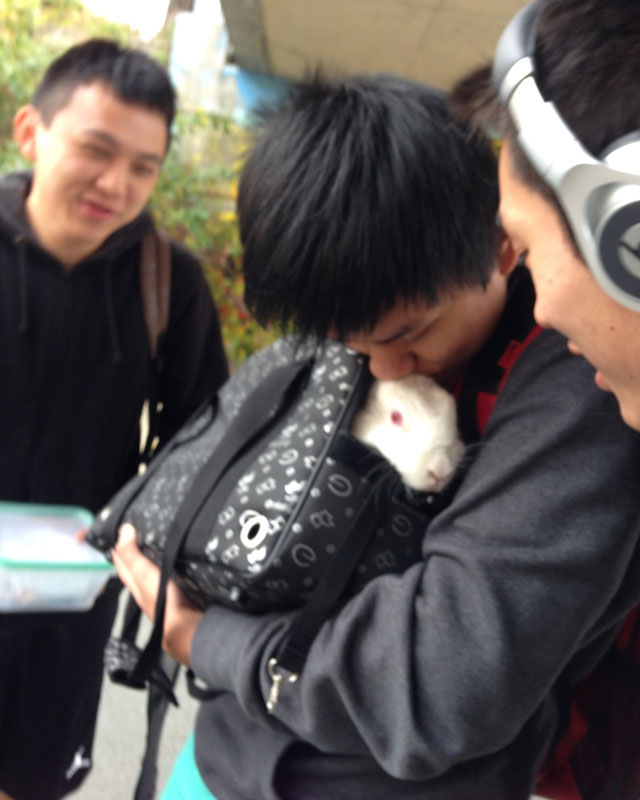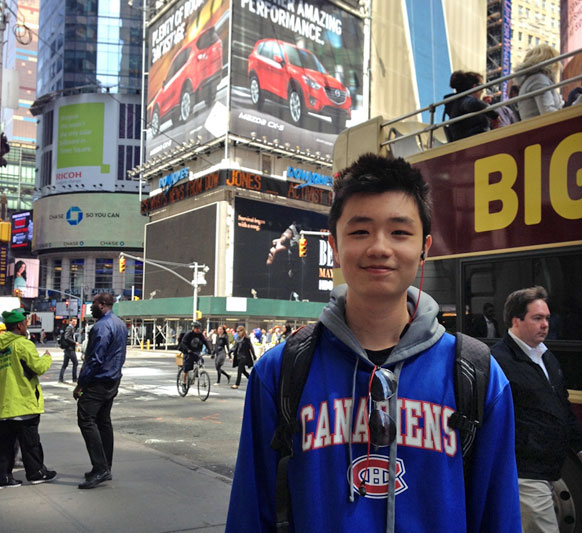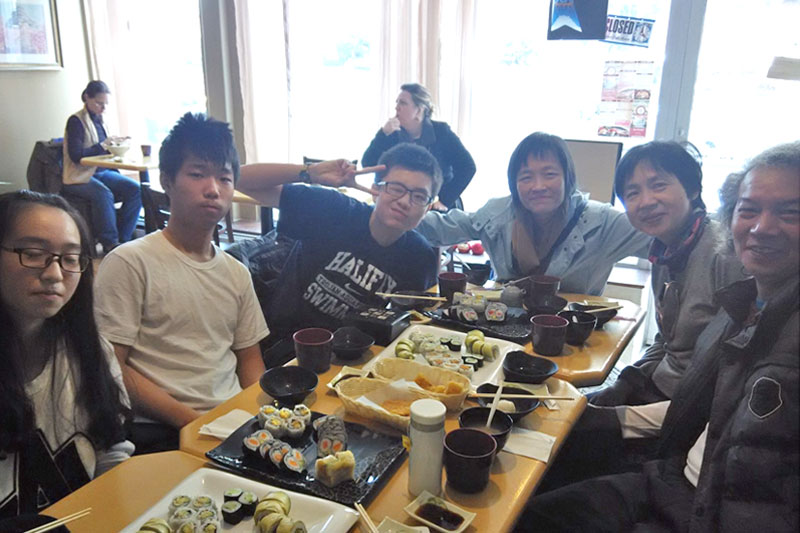Atlantic Institute for Teaching ESL & Chinese (AITEC) was established in 2002 by its Founder and Director, Ming-Ling Tsay, who holds multi-disciplinary degrees in nursing, education (B.Ed) and speech-language pathology (MSc). AITEC consists of two sectors: ESL and CFL (Chinese as a Foreign Language).
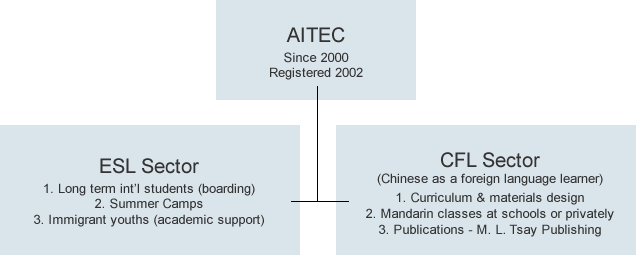
This website provides in-depth information for students and parents of the ESL sector. For information on the CFL sector and publications, please visit www.mltpublishing.com
We are neither just a regular language school nor a homestay! Since its establishment in 2002, AITEC has been receiving a niche of teenage international students, of which 80% of them are less academically competitive in China and Taiwan as the university entrance exam is very intense.
With the advantages of Canada’s great and positive learning system; we have been able to help our students to rebuild good learning habits and successfully support them to achieve: academic excellence, enter prestigious universities, and become global citizens. Our professionalism and reputation are the reasons parents choose us and continue to refer students to AITEC. You may view their Performances. Below are the universities our students have been admitted to:

At first, AITEC assumed that second language acquisition and cultural adjustment would be the focus of the program. Soon, we realized the expansive negative impact that the internet, video games, and smart phones have on teens’ mental development and physicality.
Especially, in the past two years, we have noticed the worrying tendency of escalating addiction for video games and phone among teens. Studies have indicated that video games only stimulate brain regions that control vision and movement. Whereas the other parts responsible for behavior, emotion, and learning could become underdeveloped. When playing video games, the brain releases dopamine to a level that is similar to what is seen after intravenous injection of amphetamine or methylphenidate (stimulant drugs). When the games or phone are taken away, the teen shows behavioural problems, withdrawal symptoms, and aggression. (Game Theory: How do video games affect the developing brains of children and teens? By Paturel, Amy, M. S., M. P. H., published through the American Academy of Neurology.)
As a result, teenagers’ self-discipline, academic motivation, relationships, time management, and many fundamental skills have declined significantly. In contrast, teens displaying emotional irregularities, behavioural problems, impatience (wanting immediate reward), etc. have risen. Students’ potential and future opportunities are therefore restricted.
With the advantages of the great and positive learning system in Canada, we have been able to help the students to rebuild: a good learning habit, self-discipline, empathy, responsibility, greater commitment and tolerance.
It has been observed at AITEC that when the above mentioned qualities elevate, students’ academic performance naturally improves. Besides the long-term program, AITEC has also supported many youths of new Taiwanese and Chinese immigrant families with our academic program.
In the summer, we also offer ESL summer camps that incorporate not only English lessons, but a variety of activities such as: volunteering in the local community, travelling to different parts of Canada, participating in Municipal camps, and many more.
Education has always been the passion of Ming-Ling Tsay. When she was studying her Master program at Dalhousie University, a friend asked Ming-Ling to take care and provide academic help for her daughter who was studying in Halifax. Naturally, parents have continued to refer new students. While receiving more students, Ming-Ling had the idea of starting an educational institute.
Ming-Ling has always believed in “solving problems with actions, not just theories”. She has dedicated herself to identify barriers in students and offer solutions to our students. A unique program was then created with a multi-faceted approach that touches not only a student’s foreign language acquisition, but also Eastern & Western cultural understanding, psychology, awareness of global matters, and more.
Since 2009, a few students had requested for vegetarian meals after learning about facts on meat sources and environmental issues in Global Geography and science classes. To be a global citizen and for better health, Ming-Ling began to promote the plant-based diet. AITEC eventually implemented vegetarian meals to its students and promotes the diet within the community.
AITEC students are constantly asked to pause and reflect on their mindset and actions before proceeding to the next step of learning or development.
To best explain Ming-Ling’s background, please follow the picture resume below:

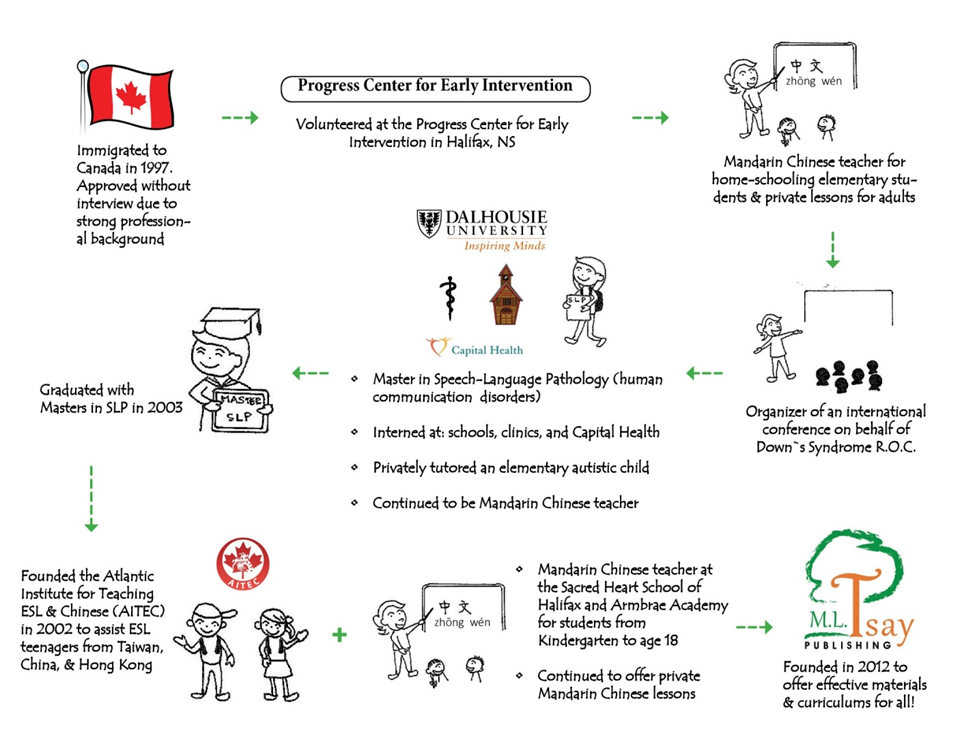
Each of our team members contributes different professions for the success of our students.
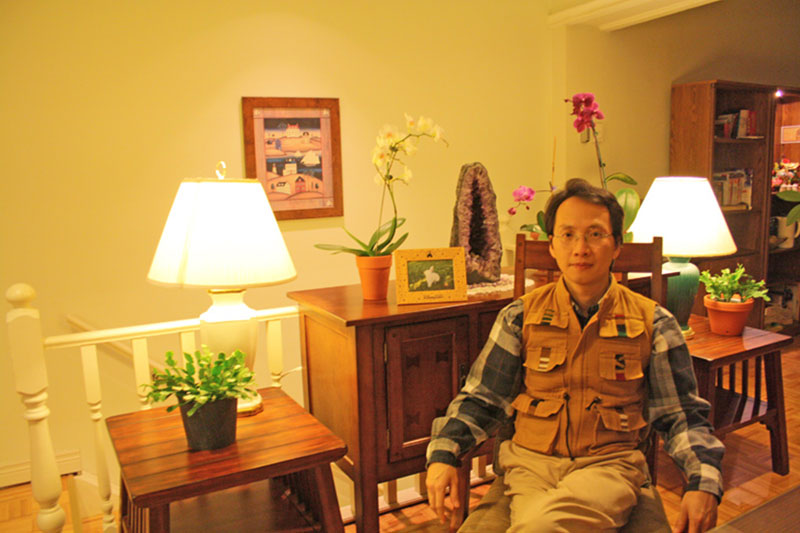
Kent Chien-Te Wu (Finance manager )
- University of Tokyo: Master in Engineering
- National Taiwan University: Bachelor in Engineering

Tim Kunz
- Dalhousie University/University of King’s College: Bachelor of Science - Double Major in Biology and History
- University of Maine Fort Kent: Bachelor of Education

Alexis Kunz
- Dalhousie University: Bachelor of Arts
- University of Maine Fort Kent: Bachelor of Education
Tim and Alexis Kunz, are both from Halifax, Nova Scotia and now live in Sambro N.S. Tim earned his undergraduate degree, B.Sc double major in Biology and History from the University of King’s College. Alexis earned her B.A. from Dalhousie University. After undergraduate studies, both Alexis and Tim attained a B.Ed from the University of Maine Fort Kent.
Tim is an experienced educator and has worked as a teacher for the Halifax Regional School Board. He currently works at Medavie Blue Cross. Alexis has experience as a substitute teacher for the Halifax Regional School Board. She is currently employed at CIBC bank as a Team Leader. We have been an ESL tutors for Ming Ling’s international students for many years. During our time as tutors we have helped to build the students English language skills through daily word activities and assisting them with their public school assignments. We have also helped the students become more familiar with Canadian culture and helped prepare the students for university or college. It has been very rewarding to get to know the students and help them grow into successful adults. Alternately, the students have taught us a lot about Taiwan and China which we both find rewarding as well.
In Tim’s spare time, he enjoys reading and performing physical activities such as ball hockey, swimming and hiking to name a few. In 2010, Tim and fellow tutor Doug Mitchell; took part in the Atlantic edition of the “Play-On” Street Ball Hockey Tournament and won the adult intermediate division. In Alexis’s spare time she enjoys reading, hiking and is a passionate badminton player.

Doug Mitchell
- University of New Brunswick: Bachelor of Business Administration
- Dalhousie University: Bachelor of Science - Biology Major, Environmental Science Minor
Hello, my name is Doug Mitchell. I currently work in the Biology department at Dalhousie University in Halifax, Nova Scotia. Within the biology department, I am lab technician along with being a teaching assistant (TA) in the first year biology course and the second year evolution course. Dalhousie University is also where I received my Bachelor of Science in Biology and I have been with the department for as long as 8 years, first as a student, and later as an employee.
I first started working with Ming-Ling and her students a few years ago. My duties include giving the students English instruction, proofreading the students’ essays, and helping them with other homework (i.e. Science). I feel that I am not only working with them, but that we are both learning from each other. All their questions are not about school work, but sometimes may be directed at asking about “What it is like to live in Nova Scotia, Canada”. Sometimes the roles are reversed, and I am finding out much about what it is like to live in China and Taiwan.
Before every Christmas vacation, I hold a trivia game night and hand out small prizes just so the students can relax a bit after a tough, stressful Fall term. They seem to have a lot of fun and appreciate a bit of friendly competition.

Raye Hsin-Jui Lee (Program support & Administration)
- Former AITEC student & Citadel High School graduate
- Dalhousie University: Bachelor of Science (Recreation) & Bachelor of Management
- Currently an Educational Program Assistant sub. and EXCEL Assistant Instructor at HRSB (Halifax Regional School Board)
Humble the Bunny (AITEC’s resident cutie and Innocence Inspirer)
- When petting Humble, many people often find comfort and calmness.
- Students see Humble’s reactions and began to understand that animals have feelings too. She provides students an opportunity to develop loving kindness and empathy.
We are not a typical host family, nor the common language school.
Criteria |
Regular Host Family |
Common Language School |
AITEC |
|---|---|---|---|
Responsibilities |
|
|
|
Not under responsibilities |
|
|
|
Stage 1 – Shock
Besides cultural differences, shock level varies depending on the different life values of the families which the students are from. This is the most difficult period of AITEC’s work. The most common challenges in this stage are:
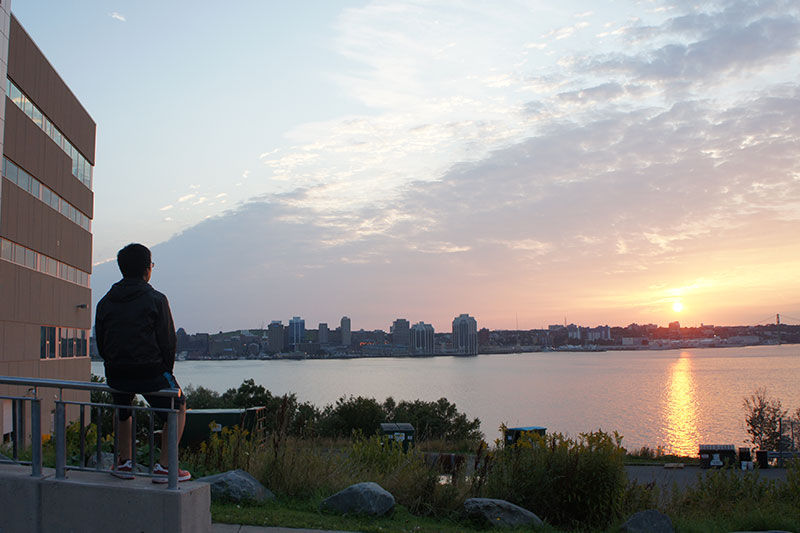
- Rejection of Western system of doing homework. For instance long-term project style (Western) vs. constant exams (Eastern), and the way of living, such as sorting garbage and recycling.
- Misconception of Western culture/freedom by watching films. If the students are from a spoiled family, he/she often argues, “I can do whatever I want.”
- When excessive leisure demands are not met, the students might show defiance, particularly those who show a serious tendency for video game and phone addiction. Subsequently, this often results in reluctance for studying and to follow group rules.
- Due to China’s one-child policy, some students demand high attention and satisfaction for their requests.
- Challenge authorities, break rules, and complain exaggeratedly to parents or others that AITEC’s program is “too strict” and students are mistreated.
Our suggestion to parents: Listen to your child’s feelings, but please disregard his/her complaints as they are experiencing cultural shock and are experiencing living in a group setting for the first time. With years of professional experience, we ask the parents to cooperate with AITEC to set up the same expectations for the student, to give students time to learn to cope with and to develop their maturity. This often helps the student to transition through the shock faster.
If parents agree with the complaints, the student might create more conflicts and troubles. AITEC then needs to spend time solving problems instead of providing our support to the individual and other students. There were two cases where the parents agreed with their children and dropped out from our program. Unfortunately, both students later showed poor attendance, failed courses, and extended time needed for graduation.
Stage 2 – Adjustment
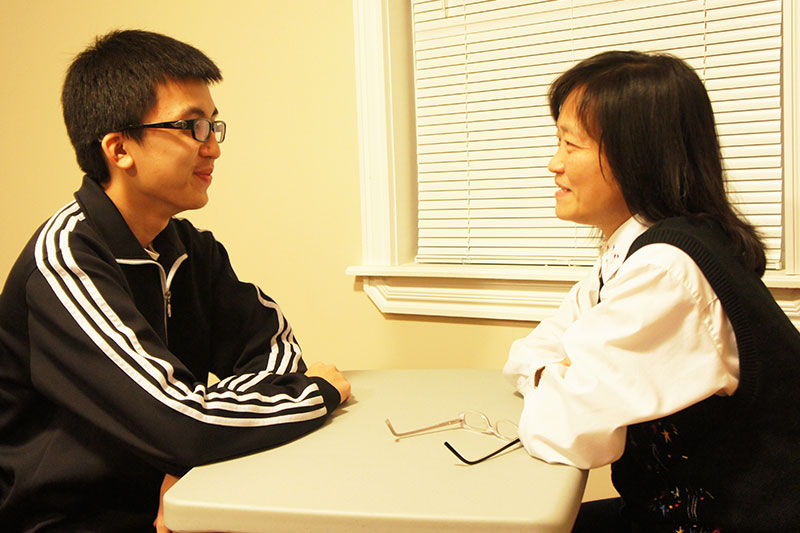
- Students begin to adjust and begin to cooperate with the program expectations. They conform to the rules for academic support, group discipline, etc.
- With AITEC’s guidance, students rebuild good learning habits and develop healthier lifestyles.
- Tension between students and staff eases. Trust begins to develop.
- As the students follow AITEC’s guidance, they often find improvement in many areas from language, school work, cultural understanding, relationship with the family and how to make friends.
- As the students follow AITEC’s guidance, they often find improvement in many areas of their life. This includes: language learning, school work, cultural understanding, and relationships with their family as well as friendship development skills.
- As students begin to adjust, they often start to receive various types of recognition from school and volunteer placements (Academic awards and participation certificates).
Signs of success: Students begin to receive recognitions. They become more confidant and trust that AITEC is helping them in the right direction. Students are now more motivated and cooperative towards their study and overall performances.
Stage 3 – Cultivation

- Students develop: responsibility, independence, motivation, maturity, confidence, empathy, committed spirit, critical thinking and in-depth analysis.
Outcome: Many students are admitted into prestigious universities, receive scholarships and positive references from their teachers’. As they display and demonstrate their positive attitudes, a greater number of opportunities become available to them at school and in life in general.
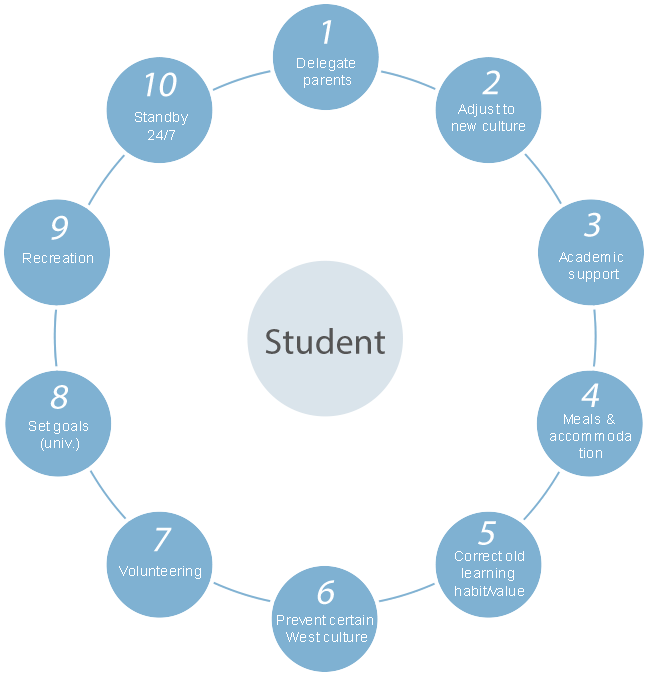
1. Delegate parents
- Attend school related meetings and events, such as parent-teacher conference, academic recognition, drama and music performances.
- Support extra-curricular activities for students who show great talent in specific fields, for example, music or swimming. Club involvement can be adjusted as academic study remains as the priority.
- Act as a liaison between parents, the school, and extracurricular clubs.
- Communicate and discuss with the parents in regards to students’ progress periodically.
As the Canadian custodian, AITEC has the full rights to exercise parental authority during the student’s stay in Canada. We supervise the students in all rounded areas and act as the liaison between the parents and the school where we attend parents-teacher conference. In the event where a student violates AITEC’s contract or Canadian laws, AITEC has the right to revoke custodianship irreversibly.
2. Adjust to new culture
While language barrier is widely assumed as the biggest challenge for international students, cultural shock might actually be the one. Students may often be confused about proper response to situations or having the wrong perception of “Western culture and freedom” acquired from movies.
Our job is to discuss the differences of Eastern and Western culture with previous and current students’ own experiences. The Director emphasizes on the harmonious cultural merging, “integrate the positivity and prevent the negativities of both cultures.”
We have noticed that once the students become more adjusted to the shock they become more open-minded. They become more attentive to day-to-day conversation and in class instruction. Students’ English improves much quicker due to their willingness to participate, and our academic support.
3. Overcoming English barriers & academic support
Most international students arrange to go to conventional language schools (strictly English language course) first before entering schools or universities. Here at AITEC, we use an integrative method. Students attend public secondary school during the day. In the evenings and weekends our academic support program helps them with their school assignments. During our sessions, the students naturally learn about grammar, sentence making, practical essay writing, PowerPoint making, presentation skills, and much more.
10 hrs/week: academic sessions are offered with an English tutor present along with bilingual staff members.
- Monday – Thursday 6:30-8:30pm, Sunday 10:30am-12:30pm
- Saturday and other available time: movie analysis, discussions on a variety of topics and mindfulness, debates, etc.
Often, the Director or the bilingual staff will offer extra support for students who show motivation and commitment but require more help (sometimes late into the night).
Academic support areas:
- Explanation of assignment rubrics and school expectations.
- Assisting students to understand content and help complete assignments so they can meet the requirements.
- Supervise the students so they submit their work on time and attend classes.
- Teach the necessary skills for essay writing, lab reports, summaries, poetry, short stories, letter writing, poster making, Microsoft Office (Word and PowerPoint). Introduce reference styles such as APA or MLA, etc. In other words, the pre-requisite skills for university study.
- Guide and discuss Shakespeare, textbooks, assigned novels, news articles, journal articles, and more, with in-depth analysis on the themes and characters.
- Answer all kinds of questions related to their studies.
- Teach internet researching skills on the web and through library resources.
Individual learning strategy and English improvement:
- Assign suitable readings, radio programs, films and documentaries, with related exercises.
- Increase vocabulary size by requiring students to memorize new words daily.
- Give topics from movies, advertisements, etc. to create PowerPoint and oral presentations.
Course selection advisory:
- Communicate with students and parents about their future studies, so the appropriate courses are selected during high school in preparation for university program applications.
English proficiency test support:
- Prepare senior year students who need to take the IELTS or TOEFL test for university applications.
4. Meals & Accommodations
AITEC’s current student residence is a 3-storey town house. The study room is on the first floor; the kitchen and dining room are on the second floor; student rooms are on the third floor.
Since 2010, AITEC has been promoting vegetarianism for reasons below:
a) Food safety & Health concerns:
Excessive chemicals and hormones have been fed to livestock for rapid growth and economic efficiency. In addition, there have been numerous cases of disease outbreak due to poor environment and contaminated meat, for example, E-coli infection, Mad Cow disease, swine flu, etc.
b) Environmentalism:
Animal agriculture is responsible for 2/3 of the carbon emissions. Global warming subsequently leads to extreme climate and natural disasters. As global citizens, every one of us shares the responsibility to help to relieve this pressing issue.
c) Improved Study Focus:
Since AITEC’s implementation of a plant-based diet, we have observed the significant improvement on our students’ academic focus. Without the intake of hormones and chemicals from meat, they have developed a more reasonable and calm temperament with less impulsiveness. As well, students’ endurance (physical and mental) has increased and their empathy has strengthened. Please visit “Student Performances” of the university accepted.
Active Learning Elementary (Public School 224) in Queens, New York, is the first public school in United States that offers vegetarian lunch menus. The school noticed the overall students’ lengthened focus, improved academic performances, and higher attendance (see link: A New York elementary school goes vegetarian). This movement has caught the public attention. Seeing such results, Peck Slip School in New York also followed in the same footsteps for a better option for its students.
d) Our observed result 1 – improved qualities → better academic performance
Without the effects of excessive hormones and toxins from meat, many students have been observed to increase their emotional stability and calmness, commit more hours towards study, increase tolerance to changes, and more.
e) Our observed result - athletic performance:
One of AITEC’s long-term ESL students, Tony Xianlong Huang, continues to break his personal best swimming record back in China. He has won multiple gold, silver, and bronze medals in the Nova Scotia Junior Provincials in 2014 and 2015 respectively. In many relay races during his competitive round, Tony helped his team catch up to the competition to finish in first place.
Other related news connecting athletics to plant-based diets includes the Green Forest Rovers soccer club in the UK. They have become the first vegetarian athletic team for environmental consciousness and health.
Some notable vegan/vegetarian athletes are:
- Carl Lewis: Winner of ten Olympic medals (9 golds) who attributes his success to his vegan diet.
- Dave Scott: Iron Man World Championship holder
- Kate Ziegler: US Olympic medalist in swimming
5. Develop new learning habits for a better learning outcome
Many of the AITEC students exhibit weaker academic skills due to under-disciplined personal learning habits back in their home country. In using peer groups, consistent supervision, and scheduled study, we help the students to rebuild a good learning habit. Then eventually, it becomes spontaneous.
Teenagers today are experiencing a greater crisis and pressure than ever – materialism and declining morale. They are too dependent on having immediate results while using smart phones. This means that they have become demotivated and less patient in analyzing problems that require insight, and they have little interest in the outer world.
Here at AITEC, we are always showing research studies, films and documentaries, etc. to discuss a variety of topics from global trends, psychology, social issues or advancements. This is to offer a different perspective for students in examining their role in this interconnected world.
To view more pictures of our meals, please go to our “Meals Album”
6. Prevent worrisome Western problems
Marijuana and illegal substances are relatively accessible through local peers at school. AITEC is fairly restrictive towards students’ participation in extracurricular events. We’d like to know in advance about the time, location, nature of the activity, other participants, and other related information before agreeing to a student’s request to going out.
In any event where a student is discovered to be drinking, smoking, or using drugs and such, serious consequences will follow.
7. Volunteering
AITEC encourages and arranges volunteer opportunities for students for the importance of learning to be contributive, accumulating experiences, and becoming part of the local community. Throughout the years, the nature of volunteering has ranged from religious reasons to environmentalism to charity. Examples include the St. George’s Round Church YouthNet programs, Bluesnose Marathon water station, The Leukemia & Lymphoma Society of Canada’s events, Atlantic Vegan Festival, Buddhist events, etc.
Volunteering allows our students to experience the culture and community, develop maturity and responsibility, and give and appreciate the harmonious connection made with people and surroundings.


8. Set goals
AITEC works with the students and parents to identify students’ interests, strengths, weaknesses, and expectations for their planning after high school. As most of our students would continue their study in universities, AITEC is careful to help students with their course selections throughout high school. In their senior year, AITEC will also guide students through the university application process. This includes researching program requirements, preparing materials, attending language proficiency test (IELTS or TOEFL for examples), and submitting applications.
9. Recreations
Depending on the season and activities available, AITEC will arrange recreational activities. Examples include inviting students’ friends for a gathering, bowling, kayaking, canoeing, a corn maze run, watching hockey games, enjoying basketball games, etc.
10. Standby 24/7
AITEC works full time 24/7 for the period of the school year (10 months). In case of any emergency, such as a student requiring medical attention, we can respond immediately.
1. To know the latest development in the vegetarian lifestyle, AITEC has joined the Taiwan Vegetarian Nutrition Society, which consists of physicians, dieticians, and professors. AITEC’s staff, students, and parents would have access to nutritious recipes, scientific research development, and more – all for a better health!
2. AITEC has presented exhibits in the first Atlantic Vegan Festival in 2014, and in 2015, to teach about local vegetarian options and resources.

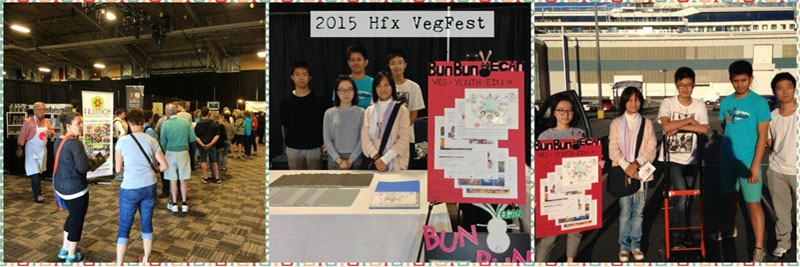
3. During the summers of 2014 and 2015, AITEC’s summer campers volunteered at St. George’s YouthNet to introduce environmental eating in their cooking camp.
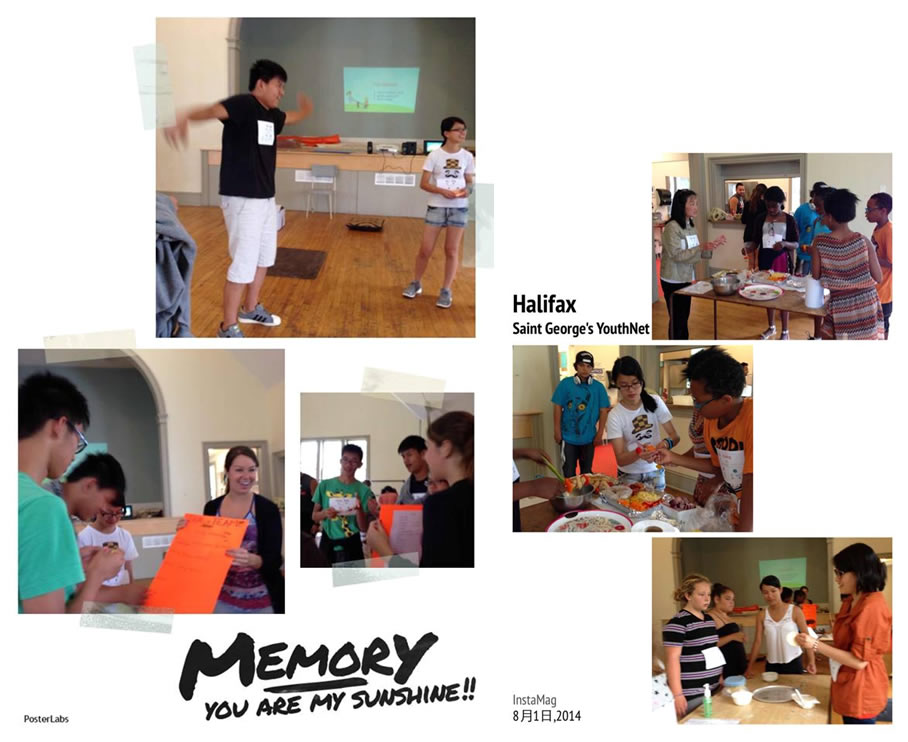

Please visit our “Albums” for more pictures.
We're translating and updating content from Mandarin Chinese. Our apologies for any inconvenience.









